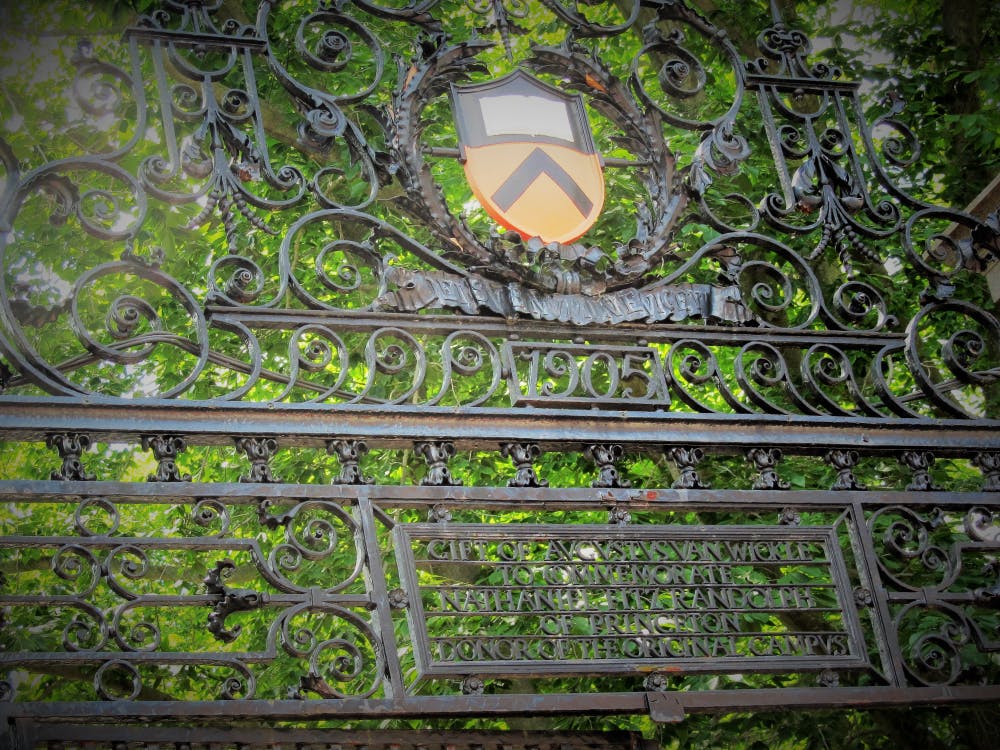Princeton University’s recent decision to drop the name of Woodrow Wilson, Class of 1879, from the designation of its public policy school garnered widespread attention and praise. Princeton widely advertised the name change as a sign of progress. While the change is certainly progressive, the decision should trigger a discussion on the name “Princeton” itself, which may have a far more sinister legacy than “Woodrow Wilson.”
The University’s origins date back to 1746 when it was established in Elizabeth, N.J., as the College of New Jersey. In 1756, the Governor of New Jersey, Jonathan Belcher, relocated the school to its present-day campus in the town of Princeton, and the University adopted the town’s name. Nassau Hall, which is in use to this day, served as the first building on campus. In 2001, University historian Sean Wilentz quoted Governor Belcher in saying that he would dedicate the building “to the immortal memory of the glorious King William III, who was a branch of the illustrious house of Nassau.”
The town of Princeton is indeed said to have received its name from King William III, the Prince of Orange from the House of Nassau. As Wilentz points out, the official colors of Princeton, orange and black, also derive from William, as does, via the building, Princeton’s “Old Nassau” song that is often performed as a school anthem of sorts.
The issue concerns the “glorious King William III,” the Prince of Orange, and the seemingly dominant role he played in expanding the trans-Atlantic slave trade. When William became King of England in 1689, the renowned slave trader Edward Colston transferred a large part of his shares in the Royal African Company to the King in an effort to retain the monopoly over slave trade in the colonies. According to research and estimates from the Trans-Atlantic Slave Trade Database, British merchants transported 76,735 slaves during the first nine years of William’s rule. This is a substantial number, but William’s impact on slave trade may be far greater than just owning shares in a company.
In 1695, William dismissed the English Parliament to make way for a new legislature that was in general more amenable to his will. The new Parliament then proceeded to enact “An Act to settle Trade to Africa” in 1698. This Act formally ended the Royal African Company’s monopoly over the slave trade and opened slave trading to British merchants. England’s merchant class had already been pushing for the opening of slave trading for quite a while. In this sense, one may argue that William was merely ceding to popular demand.
The liberalization of slave trading accelerated the growth in the number of slaves that were moved across the Atlantic. In 1697, the year before the Act was passed, merchants traveling under the British flag transported an estimated 10,180 slaves across the Atlantic. In the year 1700, this number reached 25,069. The number of slaves traded in British colonies in a year subsequently peaked at 49,897 in 1799. Between 1698 (the year the Act came into force) and 1810 (the year of the last recorded slave trade in the Commonwealth), British ships transported a staggering 2.88 million slaves from Africa to the New World, including the area known today as the United States. By way of comparison, Great Britain traded 379,552 slaves in total during its entire colonial history prior to 1698.
Students of history may point to the positive role William played in England’s Glorious Revolution. During this period, England took steps to improve governance, advance the protection of private property, and secure an increasing degree of religious freedom. Historians, economists, and political scientists should also debate William’s impact on the slave trade.
Princeton could therefore be asked to tackle another naming question: Should it continue to “immortalize” William, the Prince of Orange, by retaining the names “Princeton,” “Nassau,” and the colors orange and black? The question is especially notable given that William himself had no known involvement in the creation of the University — indeed, he died 44 years prior to its founding.

Woodrow Wilson’s name was dropped with a serious nod to his contribution as a former President of the University. Current President Christopher Eisgruber ’83 noted in his recent announcement regarding the name change: “Wilson remade Princeton, converting it from a sleepy college into a great research university. Many of the virtues that distinguish Princeton today—including its research excellence and its preceptorial system—were in significant part the result of Wilson’s leadership.”
If Princeton retains its name, it will be interesting to see how it justifies William’s legacy and its affiliation with a king who once ruled over England’s colonies, including those in North America, and oversaw the dawn of a period in slave trading in which the trade of African slaves peaked. According to President Eisgruber, “Wilson’s segregationist policies make him an especially inappropriate namesake for a public policy school.”
By the same measure, William’s policies on slavery should certainly make him an inappropriate namesake for a policy school or even a university. But for now, the Princeton University name stands alongside the newly minted Princeton School of Public and International Affairs.
Miklos Bankuti GS ’11 is a graduate of the Princeton School of Public and International Affairs.









